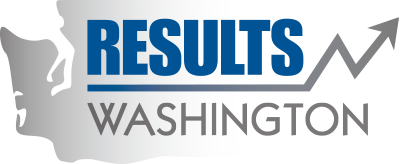About Performance audits
The Governor's Performance Audit Liaison is a member of Results Washington
Gov. Ferguson's performance audit liaison fosters the process between auditors, executive branch agencies, Governor's Office, Office of Financial Management, and the Office of of the Chief Information Officer and serves as a resource for guidance and escalation.
Part of the liaison's role includes working with the audited agencies and the Office of Financial Management or Office of the Chief Information Officer to provide a joint response to each performance audit. If the auditor finds gaps and makes recommendations, the response includes specific agency actions and due dates that the liaison tracks and publishes on Results Washington's website through completion.
Every performance audit has a public hearing with a legislative committee within 30 days of publishing - usually the Joint Legislative Audit and Review Committee.
What is a performance audit?
The Washington state legislature's audit staff defines it simply: A performance audit is analysis that answers a question. The audit uses objective analysis to compare the current condition ("what is") against stated criteria ("what should be").
Federal Yellow Book standards must be followed while conducting performance audits. These generally accepted government auditing standards issued by the U.S. Accountability Office are also known as GAGAS or Yellow Book standards. These standards apply to both financial and performance audits. The Yellow Book lists four types of performance audits:
- Program effectiveness (Is a program achieving its goals and objectives?)
- Internal control (Are controls sufficient to achieve goals and objectives?)
- Compliance (Is the program following the law, regulations, contracts and agreements?)
- Prospective analysis (What might happen in the future and what actions might the program take?)
How do performance audits differ from financial audits?
In financial audits, auditors use standard procedures and rely on accounting principles to determine the financial health of an organization. While performance audits may have a financial element, generally they determine whether an agency program is efficiently and effectively delivering the intended results.
In contrast to financial audits, performance audits are research-based, and often require the auditor to determine the criteria against which a program will be evaluated. These audits apply a variety of methodologies beyond accounting procedures.
Who conducts performance audits for Washington state agencies?
In Washington, two primary entities conduct performance audits of state agencies: the Joint Legislative Audit and Review Committee (JLARC) and the State Auditor's Office (SAO). Performance audits may also be conducted by agency internal auditors or consultants hired by an agency.
- JLARC conducts objective performance audits and other studies and reviews on behalf of the Legislature and the citizens of Washington. JLARC staff follow up with agencies and the legislature to track implementation of report recommendations and to track cost savings from these recommendations. View JLARC's upcoming work plan.
- The State Auditor's Office also conducts performance audits through the authority of citizen Initiative 900 that passed in 2005. View the SAO's work in progress. The law provides for the Governor to periodically follow up with the audited agencies under the Governor's authority until all resolution has occurred. Results Washington monitors agency action plans for SAO performance audits until completed on behalf of the Governor.
Results Washington also works with executive branch agencies and the State Auditor’s Office to encourage performance management and continuous improvement principles throughout the performance audit process. Additionally, it provides leadership support and assistance in:
- Guiding executive branch agencies through the performance audit process, joint management response with the Office of Financial Management and the public hearing
- Informing the Governor and executive staff of significant issues and actions
- Helping to identify significant budget or statewide policy issues
- Development and review of action plans that address root causes of audit findings and alignment with the Governor's policies and goals
- Monitoring audit progress, federal standards and agency action plans to address SAO findings through completion
- Integrating actions and outcomes with the Governor's goal council work when appropriate
What is the process for a performance audit?
JLARC and the SAO follow different processes. You can learn more about JLARC's process here. The links below outline the phases of a SAO performance audit and contain tools and resources for agencies specific to each phase.
How will I know if my agency is chosen for a performance audit?
You should receive written notification from the auditor. You can also view the Joint Legislative Audit and Review Committee's current work plan or the State Auditor's Office work in progress.
Are there good general practices for hosting a performance audit?
Yes! Some general guidance includes:
- Welcome the auditor
- Set a constructive tone in your office and with the auditor
- Use the audit as an opportunity to look critically at the program
- Educate the auditor
- Program mission, goals, objectives and accomplishments
- Constraints and obstacles
- Efforts to correct previously noted problems
- Work with (help) the auditor
- Selecting and setting the criteria
- Interpreting the evidence
- Diagnosing problems
- Be an open book
- Set a tone of openness and transparency
- Assist the auditor with data collection
- Provide requested evidence
- Make auditors aware of problems — don't make the auditors "find" them
- Make the auditor part of the solution
- Enable the auditor to become your consultant
- Listen to and learn from the auditor
- Ask for data about leading practices and proven solutions
Additionally, the following resources offer valuable tips on hosting performance audits.
- How to Host a Performance Audit: Helpful Tips and Best Practices. This report explains the phases of an audit and provides tips and best practices for each phase. There is also a summary PowerPoint training based on the report.

